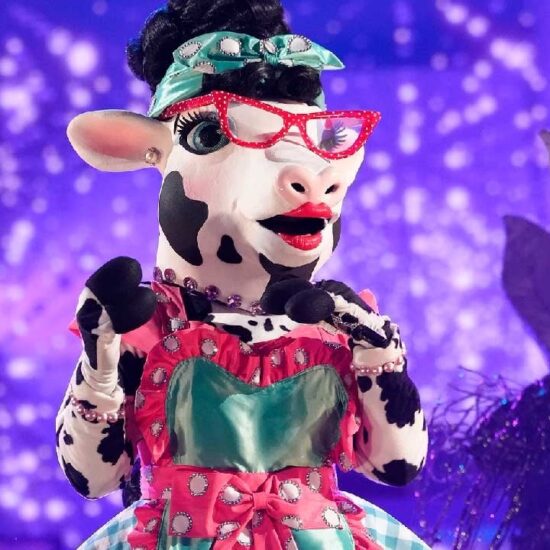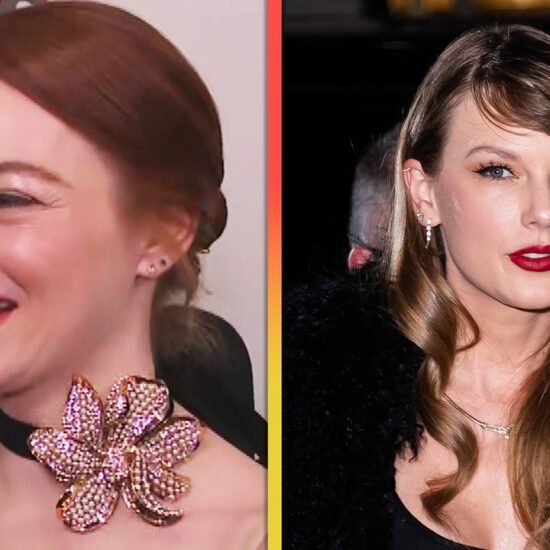
This review originally ran September 4, 2022, in conjunction with the film’s world premiere at the Telluride Film Festival.
For a movie that’s supposed to be a love letter to cinema, among other things, it’s surprising how little the magic of movies genuinely registers as a vibe in Sam Mendes’ “Empire of Light,” a frustratingly uneven and often meandering period drama written by Mendes, loosely drawing remembrances from his own formative years.
And he pulls from “a lockdown mindset,” too, as the director put it before his ’80s-set film’s world premiere at the Telluride Film Festival, a melancholic state of being marked by feelings of loneliness and even fear that things we love (like movie theaters) would be lost forever in a post-pandemic world.
Perhaps because his inspirations seem to be so extensive here, it often feels like Mendes is searching for a story within a bottomless well of moods and ideas throughout “Empire of Light.” Ironically enough, this undisciplined disposition is the exact opposite of the kind of taut restraint that was at the core of “1917,” his previous, tightly orchestrated and end-to-end choreographed film.
“Empire of Light” starts with an admiration towards the enchanted majesty of cinemas, as Hilary (an affecting Olivia Colman, with an impressively wide-ranging emotional scale) preps the beautiful movie palace where she works for its daily opening, her gentle touches aided by Trent Reznor and Atticus Ross’ soothingly nostalgic score. But then it somehow expands on the transportive power of movies only in extremely limited doses, reducing all its pretty visual and aural elements — including Roger Deakins’ adoring lens and lighting — down to precious yet empty production details as a result.
It doesn’t help that the film’s central character, Hilary, shows nearly no interest in movies until the end. “It’s for the customers,” she says when a colleague wonders why she never sneaks in to treat herself to a show at Empire, a handsome playhouse grandly designed by Mark Tildesley in deep red velvet, shiny woods and art deco brass.
With the exception of a superbly cast Toby Jones as projectionist Norman, an old-school artisan with a sincere love for the craft and medium he takes pride in, the rest of the theater staff seem to be more or less like Hilary in their general indifference to film. The main personas are the excessively styled punk Janine (Hannah Onslow), the meek Neil (Tom Brooke) and Mr. Ellis (Colin Firth, amusingly slimy), the locale’s married big boss with iffy morals, often fetching a more-than-willing Hilary into his office for a quickie and complaining how his wife won’t even make him a cup of tea these days. (The scandal!) It’s 1980, so they’re surrounded by posters of “9 to 5” and “The Elephant Man,” with 1981’s “Chariots of Fire” on the horizon as a “regional gala premiere” at the Empire, as announced by Mr. Ellis with admittedly endearing excitement.
The spirited Stephen (a terrific Micheal Ward of “Lovers Rock”) is most welcome by all when he joins the theater staff’s ranks as a junior member, immediately grabbing Hilary’s attention with his tenderness. Soon, the two bond over Stephen’s compassionate tending to a bird’s broken wing, and they eventually become lovers through secretive trysts at Empire’s abandoned top floor, a frozen-in-time ballroom with lingering splendor. Mendes strikes a charming tempo between Hilary and Stephen as they progress in their relationship, with the once forlorn Hilary no longer seeking refuge in awkward ballroom-dance lessons or lonesome dinners.
Mendes loses his grip on the material quickly from here on out, plugging Hilary’s severe mental struggles — only teased but never quite explained previously — into the story all too suddenly. It often feels like some pieces are missing when Hilary goes off the deep end in a few scenes (one, during that aforementioned “regional gala premiere”), launching into a number of heavy-handed monologues about her troubled past that come out of nowhere.
Also ill-handled, like the film’s binary approach to mental health, is the period’s racism; by putting Stephen through the wringer repeatedly, “Empire of Light” often treats racism like an embarrassingly broad “teachable moment” talking point, instead of engaging with it on a deeper level. One exception to this attitude occurs during an insightfully written scene when a racist customer confronts and intimidates Stephen, who’s politely only doing his job. But an overdone and unconvincing attack by skinheads on the Empire sadly undoes the credibility the film earns elsewhere.
In its wake (and not unlike last year’s “Belfast”), “Empire of Light” feels more like a sweet experiment on nostalgia and memory than an articulate film with something to say. This sadly becomes most evident in the film’s final chapter, which introduces two new characters: Stephen’s mom Delia (Tanya Moodie) and old friend/new romantic interest Ruby (Crystal Clarke). Regrettably, these two intriguing women often feel like afterthoughts in a story that feels mostly finished before they enter it. The last act also suffers from at least three different endings, making one wonder if there could have been a tighter, leaner film rescued out of this rubble.
“Empire of Light” opens in US theaters Dec. 9 via Searchlight Pictures.
















